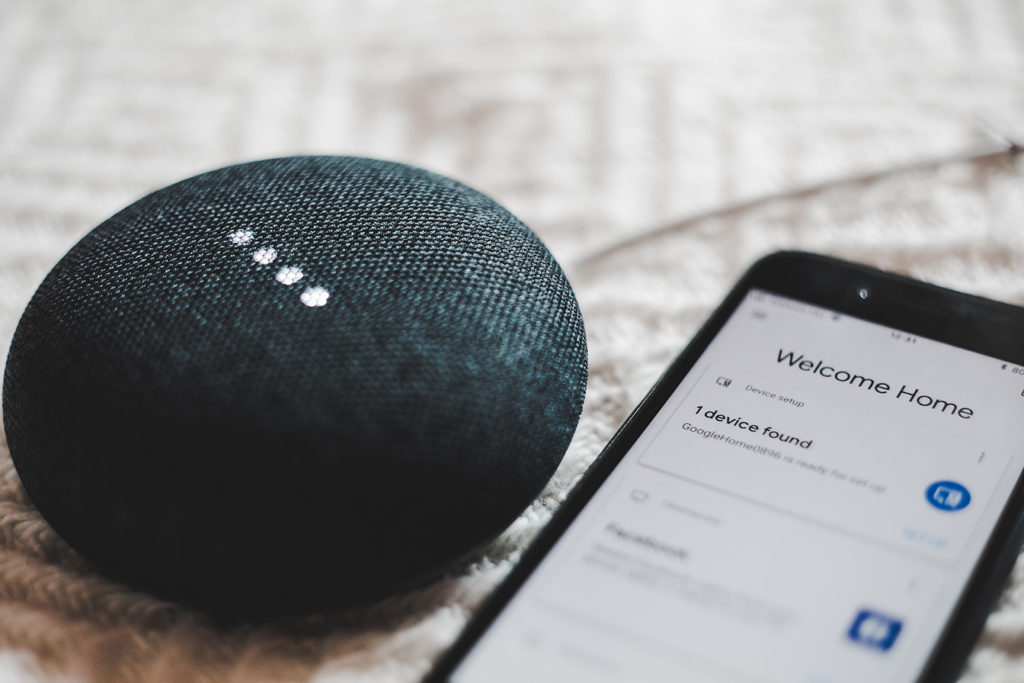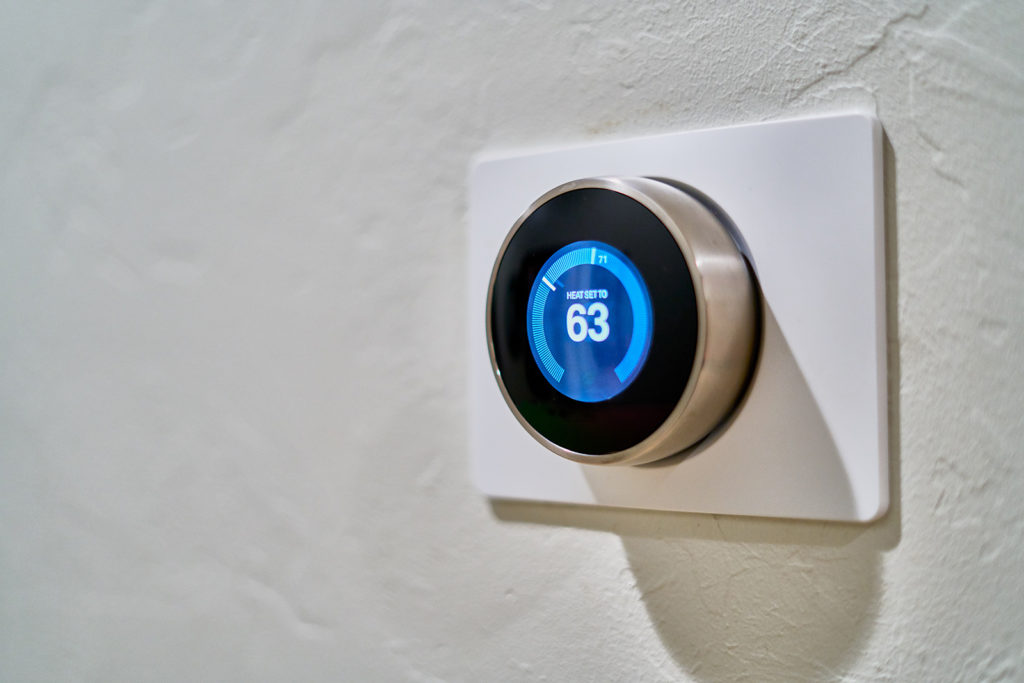Show:
Smart Home Technology: Pros and Cons
You can’t say that you don’t appreciate the benefits of a smart home technology. The invention of automated homes has already surpassed many of the modern technology inventions, including wearable tech and connected cars. Even though this is not so new, the interest is huge and growing, with more and more technologies arriving every day.

Homes today are set to get much smarter in the years to come. What’s not to love about the voice assistants and the option to remotely control everything from your doorbell to your thermostat or sprinkler system? You can use automation to manage your security system, turn on or off an appliance while you’re out, and even check if you’ve left everything well while on vacation.
What Does a ‘Smart Home’ Mean?
A smart home is ‘what the world has been waiting for, literally.’
All you need for a smart home is an installation of certain technology, your smart device, and an Internet connection. You can use it to connect an entire space and, thanks to advanced routers and high wireless coverage, you can do this faster, cheaper, and more effectively than ever.
According to Esther Colmenero, an engineer who contributes her knowledge to help students at a top resume writing services and uk assignment help, a smart home is ‘what the world has been waiting for, literally.’ This term describes a home where people use technology-driven network to connect to, control, or monitor various appliances for their own flexibility and safety.

Smart home goes beyond just the home. For example, the various companies use a myriad of different tools to automate and control the work at the offices. Managers have access to various computers to track the progress of writers, editors get to check the work before it’s submitted, and owners can control everything from the temperature to the security systems.
How Does This Help the Government?
Many people debate that the government uses automation and technology to take control over the lives of people. They can fight crime thanks to the automated security systems and apprehend burglars, avoid fires thanks to the fire systems and instant notifications, etc.
This is not all. If you believe the many statements that the government spies on the people in this country, you’ll realize that this kind of life certainly makes their tasks much easier. Since technology is stored in the online world, the government will have a lot of data concerning your way of living thanks to the utilities you use in your smart home.
Why You Need a Smart Home
Before we go into the advantages and disadvantages of smart home technology, let’s answer one big question: what can a smart home do for you? Many people choose to purchase this technology to be able to control what’s happening within the home, prevent accidents, and even get the home ready for when they come back.
Imagine that you’d been on holiday for a couple of days and you have to go back to a freezing home. You no longer have to send a neighbor there to turn on the heat. With a smart home, you can do this on your way home, a day before you get there, or whenever you wish.
If you have a pet and want to see how he’s doing, a simple home camera will let you check in on him at any time. The same applies to children, or any elder that must stay alone at your home while you’re at work.
And, let’s not forget those stressful situations where you aren’t certain if you turned off the heat, the oven, or any other appliance before you left your home. It can happen to anyone and very often, it happens when you are in a rush.

‘I remember this one time when we finally packed our kids and went to catch our flight to Rome. At the airport, my husband asked me if I turned off the heat. At that moment, I froze. I wasn’t sure of what I did and what I didn’t. So, we had to go back home to check and missed the flight.’ – says Joanne Gamble, an expert from NSBroker. This can ruin your holiday, make you come back sooner, or make you worry all day while at the office. With a smart home, you can check this and turn on or off anything you need without having to even stand up.
Right now, there are so many options, you can automate almost everything. You can connect the devices to work together. For example, you can make the smoke and carbon monoxide detector send a message to the thermostat and turn it off if it detects a carbon monoxide leak in your home. Also, you can use technology like Alexa, Philips Hue, or Nest to lock your car door, dim the home lights, or adjust the thermostat as you wish.
Pros for a Smart Home
What are the pros of turning your home into a smart home?
Convenience
This is quite the obvious advantage. Smart home technology is invented to make life easier for the user. Convenience is the first selling point of the majority of such devices and one of the biggest reasons why people invest in this. You can adjust, turn things off and on without having to stand up, wake up, or get back home. Plus, you can even schedule these processes without worrying about anything later.
It saves you from the small, yet really important hassles such as having to turn the heat on before you wake up, or turn the lights off after you go to bed. The system can make your coffee and have it ready for you once you get to the kitchen, or turn off the pot if you forgot to do so before going to work.
Energy Efficiency
Home automation systems are quite proven in terms of energy efficiency. You can use these to control or pre-program the temperature based on the time of day or day of week. You can adjust them if something changes and control them when you’re out of home. This allows you to have a piece of mind and avoid big expenses like in the case of Joanne above. In fact, behavior and traditional-based automation can be applied to almost every gadget you can control, such as your coffee maker, TV, or your sprinklers.
Safety and Security
Knowing that your home and the people in it are safe is probably your first priority. You can use smart home technology to keep your belongings and family safe from burglars and accidents. With a security camera, you can track who enters or exits your home even if you’re far away. With a safety camera inside your home, you can check up on your kids or any elders in your home, as well as your pet.
And, let’s not forget about the things you might accidentally have left on or off. You can mitigate all risks of fires or at least learn about the danger before it makes big damage, as well as avoid those big bills that happen when you forget to turn off the heat.
Cons for a Smart Home
There are some disadvantages of a smart home, too. These include:
Installation
Based on what system you choose, installation can be more or less complicated. You can do it on your own to reduce the expenses. Hiring a contractor to do this brings additional costs, not to mention the cost of the system you plan to purchase. However, the benefits in the long run definitely make the cost worthwhile.
Also, when you install such software, you need to ensure that your home is protected against issues like power surges.
Internet Outage Vulnerability
Whenever your internet connection goes down, most of the smart systems won’t work. You can cut down the risk if you have some sort of backup ready to keep your system working.
Complex Technology Systems
All this sounds very appealing, but be prepared to be confused at the beginning. Its complex technology, which makes it a bit hard to adjust and it is definitely not as easy as turning the lights off by using the switch. Find a system you can learn and understand easily and go with it.
Compatibility
Not all systems you want to include in your smart home will be compatible to your device. Also, you might have to use various programs and apps to manage the technology. A centralized platform that lets you control all systems is available, but it comes at a much higher cost.
Conclusion
Have you decided on what to include in your smart home? The technology offers you more versatile options than ever and the benefits sure sound attractive. Weigh the pros and cons and make a decision – does a smart home sound like something you’d want?
About the author:
Piter Bunn is a marketing specialist. Currently, he is working as a marketer at ukbestessays. He’s also working in top essay writing services who provides dissertation writing services reviews for online writing services.

 Return to Previous Page
Return to Previous Page








